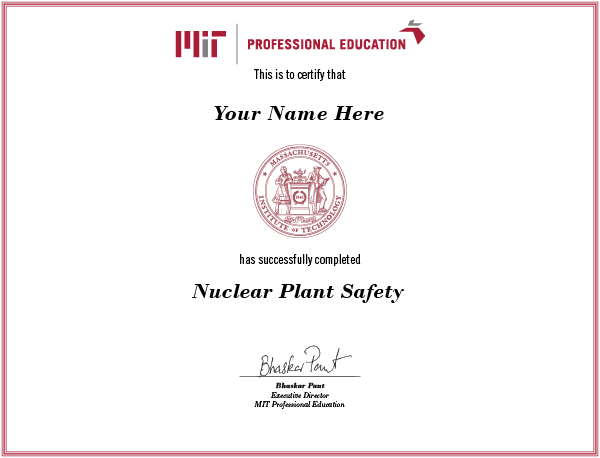Join leading MIT faculty to explore safety and regulatory issues of operating and maintaining planned reactors in the U.S. and other countries. Alongside a group of accomplished peers, you’ll assess current developments in nuclear plant safety, such as risk-informed operations, extended life operation, high-performance fuel, spent fuel storage management, PWR and BWR materials issues, cybersecurity, operating reactor safety and licensing, and seismic safety.
The type of content you will learn in this course, whether it's a foundational understanding of the subject, the hottest trends and developments in the field, or suggested practical applications for industry.
How the course is taught, from traditional classroom lectures and riveting discussions to group projects to engaging and interactive simulations and exercises with your peers.
What level of expertise and familiarity the material in this course assumes you have. The greater the amount of introductory material taught in the course, the less you will need to be familiar with when you attend.



